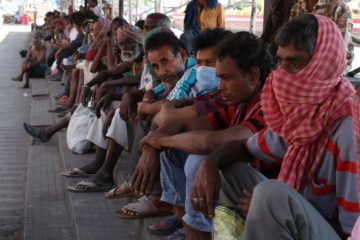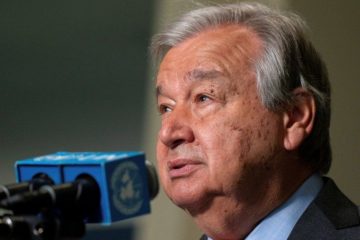When inquiring about typical utopian, or rather dystopian novels, one instantly thinks of Huxleys’ Brave New World and Orwell’s 1984. Yet, few know that We, written in 1923 by the Russian author Yevgeny Zamyatin but published in the Soviet Union only in 1988, inspired both these authors. In fact, We’s plot is extraordinarily similar to that of the other books.
Orwell praised Zamyatin and acknowledged his masterpiece for inspiring his 1984. In his review of We in 1946 he announced: ‘’This is a book to look out for when an English version appears’’ and seemingly decided to write such a version himself.
Huxley, on the other hand, never admitted to have read We before writing Brave New World and denied it as being a source of inspiration.
We’s plot sets the reader in the future, in a society ruled by oppression and mechanical order. People are reduced to numbers and have no freedom. Zamyatin himself, summarises his dystopia in the novel- “Those two, in paradise, were given a choice: happiness without freedom, or freedom without happiness. There was no third alternative.” The individual will of the main character, D-503, strives to defy the oppressive system as he meets and falls in love with a member of the resistance.
The depth of Zamyatin’s insight is twofold. Firstly, he foresaw a close representation of what the situation in USSR would become under Stalin long before it actually happened and secondly, his novel has not aged a day. Although Orwell and Huxley’s storylines are somewhat restricted to the world the authors evolved into, We seems to remain timeless. In fact, Zamyatin proceeds with symbols, leaving the reader to draw conclusions of his/her own. All in all, Zamyatin transmits powerful and controversial ideas upon which to reflect, ideas that have tormented us all, ideas that Orwell would call in Newspeak ‘doublethink’.
Zamyatin, the rebellious forerunner
Can we blame Orwell and Huxley from borrowing features of We? Similarities between Brave New World, We and 1984 may be cringing, yet the three novels have different purposes. 1984 is a warning against the dangers of totalitarianism, written in the aftermath of the Second World War and during the rise of authoritarian regimes. Brave New world essentially builds a case against the perils that science, when exempt from ethical concerns, may represent. We, on the other hand, addresses both issues, but disengages itself from any historical context. I came to believe Zamyatin’s main message is about individuality: “You’re in a bad way! Apparently, you have developed a soul” says a doctor to D-503. He is in fact considered ill for having dreams and thoughts of his own. Yet, deprived from his individual consciousness, D-503 would be a purposeless blank mind.
Zamyatin thus shows the importance of non-conformity. He calls for ‘infinite revolutions’ as he believes in passion and freedom of expression. I find the importance of perpetually questioning the established order to be crucially relevant nowadays. In fact, me must not forget that the ever increasing political populism and extremism reflects how flawed our societies are. Rather than rallying behind movements fed by hatred and radicalism, one must use democracies to create a public debate, and a meaningful one. In fact, under the influence of social medias and advertisement, such a debate becomes amorphous. Even the press, meant to provide truthful information and thus enable democracies to function, seems influenced by social media and the wave of “fake news”, which influenced the last presidential elections in the United States and currently, the presidential campaign in France. These non-conformist authors remind us to build opinions for ourselves (in 1984, the hero’s job is to build propagandist news based on false information).
As an engaged author living in the Soviet Union (which he managed to escape), Zamyatin encourages using literature as a mean to raise awareness. To him, “True literature can exist only where it is created, not by diligent and trustworthy functionaries, but by madmen, hermits, heretics, dreamers, rebels, and sceptics.” He refused to accommodate his art into political expectations and propaganda, and advocates others to follow his path. Artists can lead rebellions, however subtle their message.


